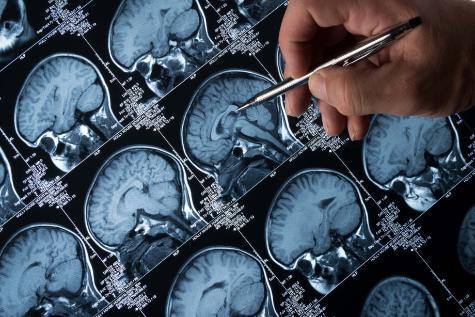NIH Funds Research to Help Understand Link between Diabetes and Alzheimer's Disease
Alzheimer’s disease leads to progressive loss of brain function and there is currently no effective treatment.

Alzheimer’s disease leads to progressive loss of brain function and there is currently no effective treatment. Patients with diabetes have a higher risk for developing Alzheimer’s disease. Researchers at New York Medical College (NYMC) and Eastern Virginia Medical School (EVMS) are collaborating to study the link between obesity, diabetes, heart disease and brain dysfunction that could lead to earlier interventions and new treatment options for Alzheimer’s disease. The new study, “Impact of Atherosclerosis, Metabolic Syndrome, and STAT4-dependent Immunity on Alzheimer’s Disease,” is supported by a grant of $402,764 from the National Institutes of Health.
“Alzheimer’s disease is a chronic progressive neurodegenerative disease and the most common form of dementia in the elderly, affecting 5.8 million Americans in 2020,” said Jerry L. Nadler, M.D., dean of the School of Medicine and professor of medicine and of pharmacology at NYMC. “None of the pharmacologic treatments available today for Alzheimer’s slow or stop the damage and destruction of neurons that cause the disease and make the disease fatal.”
Patric K. Stanton, Ph.D., professor of cell biology and anatomy and of neurology at NYMC, has teamed with Dr. Nadler and Elena Galkina, Ph.D., professor of microbiology and molecular cell biology at EVMS, to focus on the role of signal transducer and activator of transcription 4 (STAT4)—a protein that attaches to specific regions of DNA to help control activity of certain genes—as it relates to possible immune cell function. Changing activity or expression of STAT4 could lead to new treatments for diabetes and heart disease.
“We have demonstrated in our research that global deletion of STAT4 prevents diet-induced fat tissue inflammation and atherosclerosis,” said Dr. Nadler.
This new research extends their study of STAT-4’s role in diabetes and heart disease to investigate the potential role of STAT4-dependent immunity in the prevention of Alzheimer disease.
“Evidence shows that increased risk of cardiovascular disease, including aging, hypertension, hyperlipidemia, and vascular dysfunction, as well as pre-diabetes and type 2 diabetes, elevate the chance of developing Alzheimer’s disease—highlighting potential common mechanisms and a cross-talk between these pathologies,” said Dr. Stanton. “My colleagues’ recent exciting discovery of a key role of STAT4 in this inflammatory process in the cardiovascular system opens the intriguing possibility that it may play a similar role in brain inflammation that promotes Alzheimer’s disease.”
In the study, NYMC and EVMS researchers will explore how atherosclerosis and associated insulin resistance alters immunity and supports Alzheimer’s disease-like pathology.
“With the discovery that Alzheimer’s disease may begin 20 years or more before the onset of symptoms, this research has the potential to provide a much wider window for identifying ways to prevent the disease, or possibly halt progression entirely,” says Dr. Galkina.
